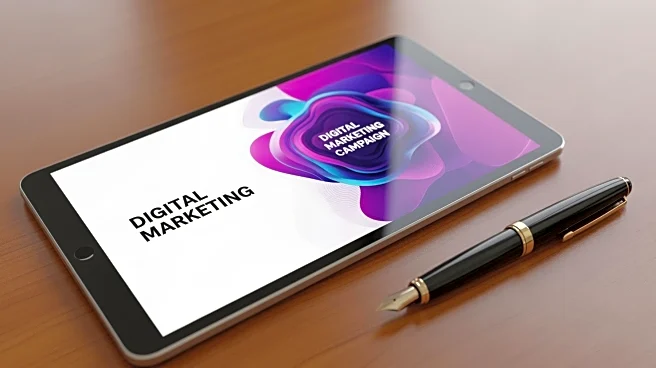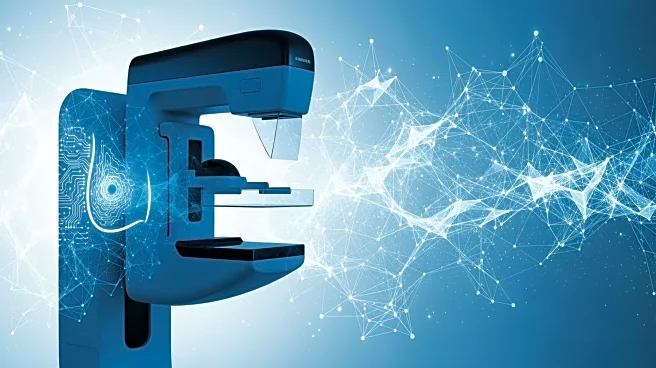What's Happening?
Marketing is undergoing significant changes as artificial intelligence (AI) transforms traditional discovery channels and creative processes. During a Brandweek 2025 event, Jonathan Hunt from HubSpot discussed
the impact of AI on marketing, emphasizing the need for brands to adapt to new models that integrate human insight with machine intelligence. This shift is driven by the challenges of reaching audiences through conventional channels, which are becoming less effective. HubSpot advocates for 'loop marketing,' where AI and humans collaborate to personalize messaging and content. The company also stresses the importance of owning distribution channels rather than relying on rented platforms like social media.
Why It's Important?
The integration of AI in marketing represents a fundamental shift in how brands connect with consumers. By combining human creativity with AI's analytical capabilities, companies can enhance authenticity and build long-term relationships with their audiences. This approach not only improves marketing efficiency but also helps brands navigate the rising costs and diminishing returns of traditional media channels. As AI continues to evolve, marketers must adapt to maintain relevance and competitive advantage in a rapidly changing landscape.
What's Next?
As AI becomes more prevalent in marketing, companies will likely invest in developing proprietary channels and technologies to better control their audience interactions. This could lead to increased innovation in content creation and distribution strategies. Marketers will need to continuously refine their approaches to leverage AI effectively, ensuring that human elements remain central to their campaigns. The ongoing dialogue between AI and human-driven marketing will shape the future of brand communication.
Beyond the Headlines
The rise of AI in marketing raises ethical considerations regarding data privacy and consumer trust. As brands collect and analyze vast amounts of data, they must ensure transparency and protect user information. Additionally, the shift towards AI-assisted marketing may impact employment in the industry, as automation changes the nature of creative roles.








